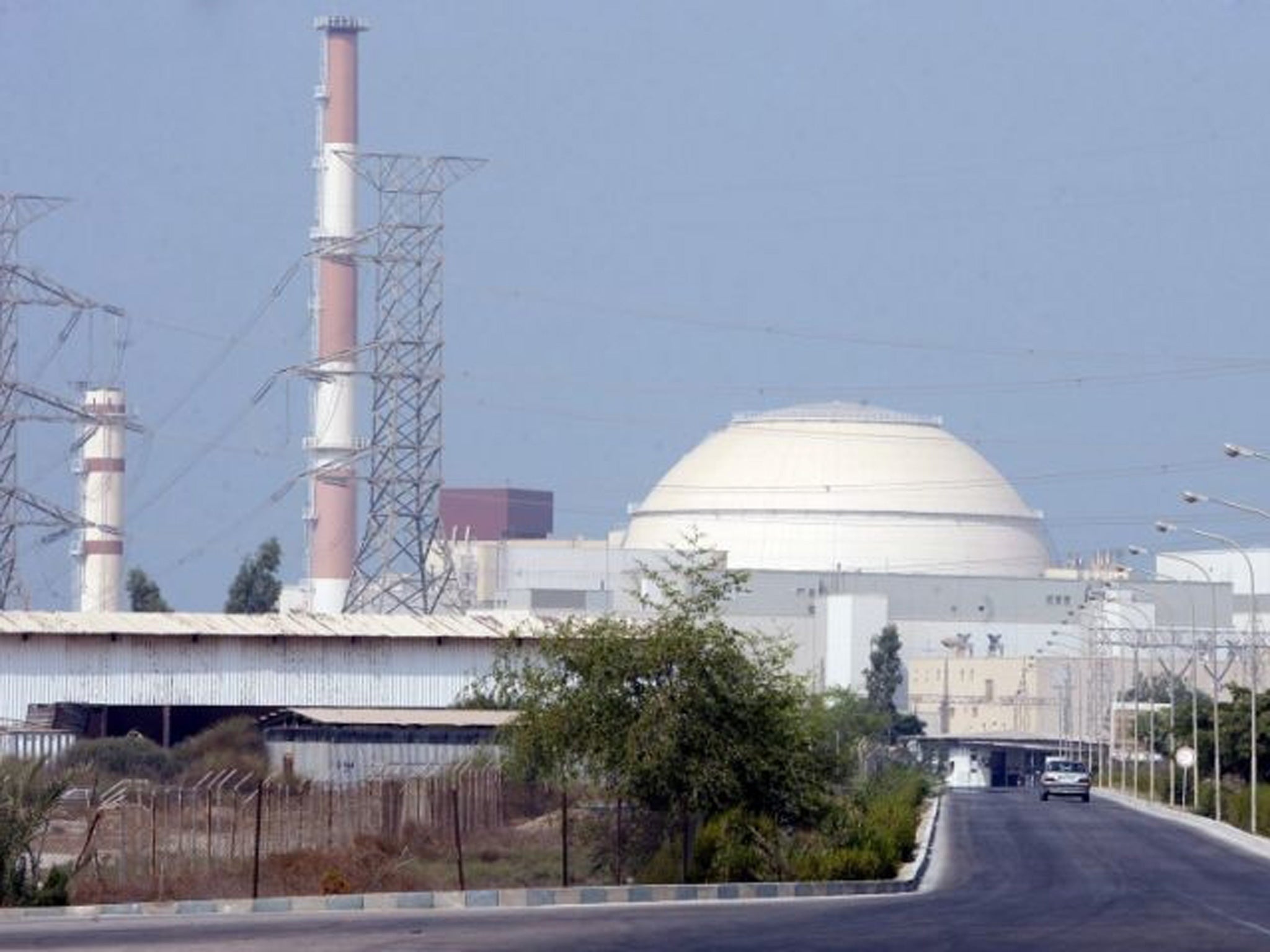Iran agrees to daily inspections as it reaches interim nuclear deal with world powers
Decision sets clock running on six-month deadline for a final nuclear agreement, ending crippling sanctions

Iran has agreed to limit uranium enrichment and to open its nuclear programme to daily inspection by international experts starting next Monday.
It sets the clock running on a six-month deadline for a final nuclear agreement, officials said yesterday.
In exchange, the Islamic Republic will get a relaxation of the financial sanctions that have been crippling its economy.
The announcement that Iran and six world powers had agreed on the plan for implementing an interim agreement came first from Iranian officials and was later confirmed elsewhere.
Some US politicians have been worried about the agreement, calling for tougher sanctions against Iran, rather than any loosening of controls.
Iran's official IRNA news agency quoted Iranian deputy foreign minister Abbas Araghchi as saying the deal, which sets the terms of a landmark agreement reached in November, would take effect from next Monday.
The agency said Iran will grant the United Nations' watchdog International Atomic Energy Agency access to its nuclear facilities and its centrifuge production lines to confirm it is complying with terms of the deal.
Mr Araghchi later told state television some 4.2 billion US dollars (£2.5 billion) in seized oil revenue would be released under the deal. Senior officials in President Barack Obama's administration put the total relief figure at 7 billion US dollars (£4.2 billion).
Mr Obama welcomed the deal, saying it "will advance our goal of preventing Iran from obtaining a nuclear weapon".
He said: "I have no illusions about how hard it will be to achieve this objective, but for the sake of our national security and the peace and security of the world, now is the time to give diplomacy a chance to succeed."
Under the November agreement, Iran agreed to limit its uranium enrichment to 5 per cent - the grade commonly used to power reactors.
The deal also commits Iran to stop producing 20 per cent enriched uranium - which is only a technical step away from weapons-grade material - and to neutralise its 20 per cent stockpile over the six months.
In exchange, economic sanctions Iran faces would be eased for six months. During that time, the so-called P5+1 world powers - Britain, China, France, Germany, Russia and the US - would continue negotiations with Iran on a permanent deal.
The West fears Iran's nuclear programme could allow it to build a nuclear bomb. Iran says its programme is for peaceful purposes, such as medical research and power generation.
Iran's semi-official ISNA news agency reported yesterday that under the terms of the deal, Iran will guarantee that it will not try to attain nuclear arms "under any circumstance".
However, Mr Araghchi stressed Iran could resume production of 20 per cent uranium in "one day" if it chose.
Senior US officials said UN inspectors would have daily access to Iranian nuclear sites and would make monthly reports.
Iran will dilute half of its nuclear material during the first three months of the agreement, they said, and all of it by the end of the agreement.
In exchange, Iran would have access to parts for its civilian aviation and automotive industries. Iran also would be allowed to import and export gold, as well as export petrochemicals.
The deal also gives Iran access to international humanitarian and medical supplies, though Iran still could not use US banks and the majority of sanctions would remain in place.
EU negotiator Catherine Ashton praised the deal in a statement, saying "the foundations for a coherent, robust and smooth implementation ... have been laid.
German Foreign Minister Frank-Walter Steinmeier called the deal "a decisive step forward which we can build on".
US Secretary of State John Kerry also welcomed the deal, saying further negotiations "represent the best chance we have to resolve this critical national security issue peacefully, and durably".
But he warned that despite a fledgling detente with Iran, the nuclear negotiations have all but exhausted both sides' time, keeping them from being able to work on other shared global interests, including the civil war in Syria.
Suspicions remain high in both Tehran and Washington after decades of hostility dating back to the 1979 Islamic Revolution in Iran that ousted the US-backed shah dynasty.
Iran's new reformist president, Hassan Rouhani, has reached out to the West, but must depend on support from Iran's top decision-maker, Supreme Leader Ayatollah Ali Khamenei, for his initiatives amid criticism from hardline factions.
AP
Video: Obama on Iran diplomacy
Subscribe to Independent Premium to bookmark this article
Want to bookmark your favourite articles and stories to read or reference later? Start your Independent Premium subscription today.

Join our commenting forum
Join thought-provoking conversations, follow other Independent readers and see their replies